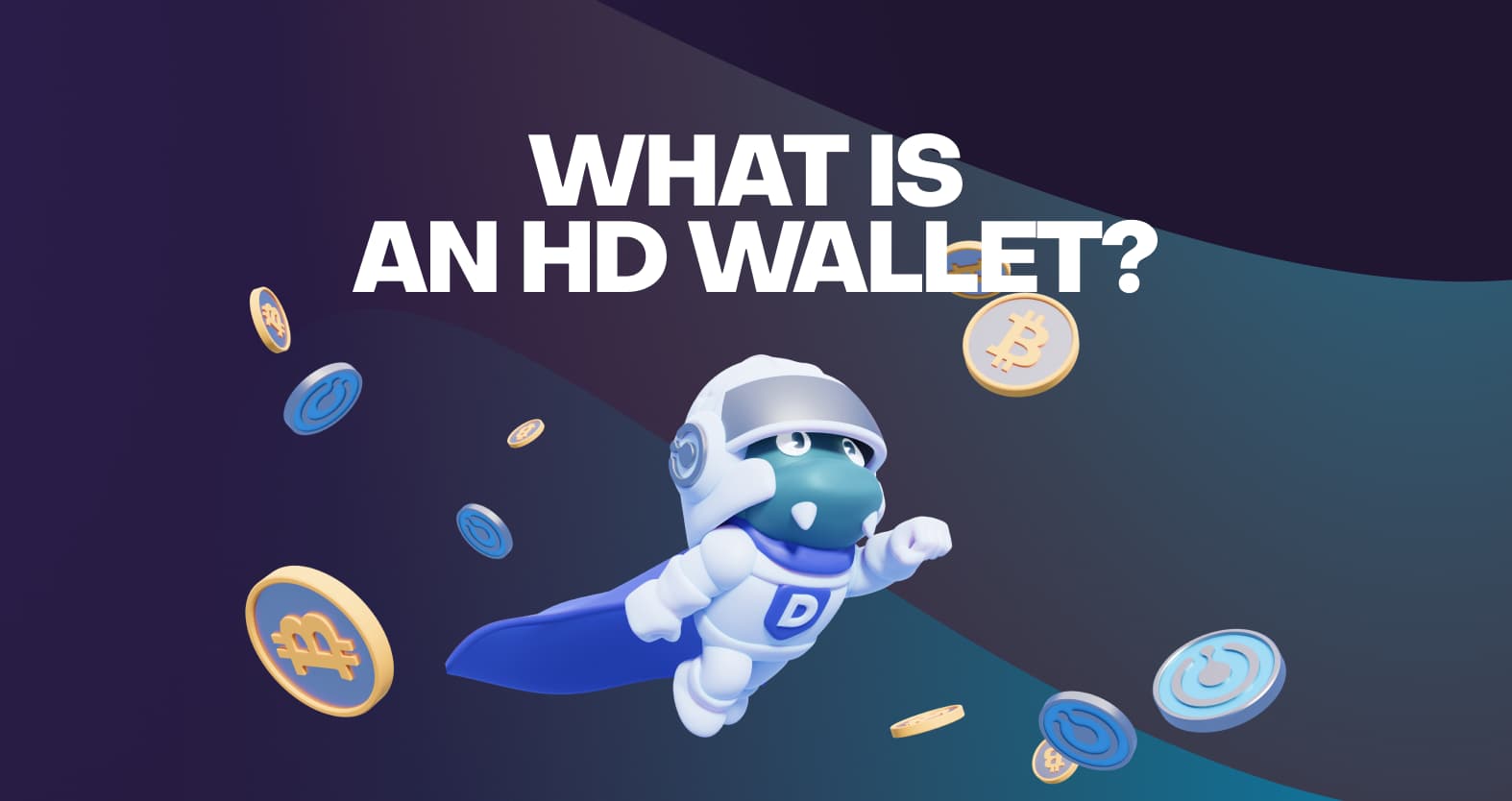
Table of contents
Digital wallets aren't the only way to hold, transfer, buy, or sell cryptocurrencies. In addition to hot and cold wallets, there are other categories or wallet descriptions that build on the basic wallet design for more security or privacy. One of such is the hierarchical deterministic (HD) wallet.
Key Takeaways
- Each HD wallet creates a tree with several key pairs as branches.
- With one HD wallet, anyone can generate multiple addresses, control access to each one, and effectively remain anonymous.
- HD wallets may not support all cryptocurrencies.
What is a HD Wallet?
A hierarchical deterministic wallet derives public and private keys from a seed. This wallet type generates new addresses with new pairs of private and public keys as required for each transaction. Subsequent addresses are connected in a hierarchical model with the master pair at the top of the hierarchy. The master key pair is called the Extended Key Pair, and comprises of the Extended Public Key (xpub) and the Extended Private Key (xpriv).
Bitcoin Improvement Proposal 32 (BIP-32) introduced the HD wallet standard to the Bitcoin protocol in February 2012. BIP-32 sought to use a single seed to generate a keypairs tree and create a wallet structure from this tree. HD wallets provide users with better security, privacy, and account recovery.
Hierarchical deterministic wallets create hierarchical key pairs from a seed phrase — usually a group of 12 to 18 words — and generate public and private keys. Users with HD wallets don't have to worry about losing their crypto if their hard drive gets corrupt. With the same seed phrase, anyone can simply regain access to the wallet and recall all old addresses and private keys. This is a significant improvement over more basic wallets that independently generate public and private key pairs and require repeated backup processes.
Benefits of HD Wallets
There are several benefits crypto users can enjoy by using hierarchical deterministic wallets. The major ones include:
- Easy Backups — HD wallets eliminate the need to continuously back up all keys and private/public key pairs. Users can easily retrieve all connected information if the recovery seed is safe.
- Offline Key Storage — This type of wallet allows users to derive an entire tree of a potentially unlimited number of public keys or addresses from one parent public key. This function is possible without a private key.
- Multi-Currency Support — Since each HD wallet can potentially generate several different addresses, anyone can use one HD wallet to maintain different cryptocurrencies.
- Privacy — The hierarchical structure applied allows users to change their public addresses as often as required. This increases privacy by making it more difficult for anyone to trace a user’s transaction history or activity.
- Controlled Access — The user who owns the wallet can create more addresses and keypairs to control access to funds. Doing this lets the user provide limited or regulated access to third parties so they can access funds held under specific pairs.
- Recordkeeping — Wallet owners can create public keys at any point in the tree so that one or more persons can gain limited access to transaction history.
Deterministic vs. Hierarchical Deterministic Wallets
A deterministic wallet is a system that generates multiple keys from a seed that functions as the starting point. The seed is usually serialized into a mnemonic word sequence that allows users to create several additional keys and backup or restore a wallet without any additional details. Deterministic wallets also let users create public addresses without the corresponding private key.
The hierarchical deterministic wallet adds a hierarchy to all addresses created from a seed. This is currently the most advanced type of deterministic wallet because it builds a tree structure that starts with parent keys. The parent keys can then generate children keys, grandchildren keys, great-grandchildren keys, etc.
Extended Key Pair
HD wallets function with an Extended Key Pair consisting of an extended public key (XPUB) and an extended private key (XPRIV). This pair of keys forms a foundation for all other keys or addresses derivable via the HD wallet.
- Extended Private Key — Easily the most important of the pair because it is the framework for all of the wallet’s eventual private keys. The XPRIV generates all the private keys and directly controls funds connected to other private keys in the HD wallet. Any unauthorized access to the XPRIV can cause an irreversible loss of funds.
- Extended Public Key — Not as sensitive as the XPRIV. With the XPUB, anyone can view the balances of all the HD wallet’s public keys. Although third parties cannot use the XPUB to move assets from the wallet, it's advisable to keep the XPUB private because anyone can use it to access confidential wallet information.
Related Terms
- Non-Deterministic Wallets: A non-deterministic cryptocurrency wallet independently and randomly generates private keys that require users to continuously make periodic backups.
- Public Key: A public key is a cryptographic code used to receive crypto assets. The public key is a wallet address and is sufficient enough for deposits. Users may freely share their public keys.
- Private Key: A private key functions as proof of ownership and may take several forms, including a mnemonic phrase or a 64-digit hexadecimal code. The private key allows users to spend or transfer cryptocurrencies and is required to initiate transactions. As the name suggests, a private key should not be accessible by third parties. Users who do not protect their private keys may quickly lose funds.
Hierarchical deterministic wallets provide better security and control of crypto funds. These wallets also allow their owners more autonomy, controlled access, and better support. The tree structure, coupled with multi-currency support for several addresses, helps to clean up users’ record-keeping processes and makes it easy to access all funds via one Extended Key Pair.
However, note that HD crypto wallets may not be compatible with all cryptocurrencies, especially those that do not use or allow changing addresses. Users can begin their cryptocurrency journey by trying out the secure and non-custodial AtomicDEX wallet, which has a built-in cross-chain bridge.




